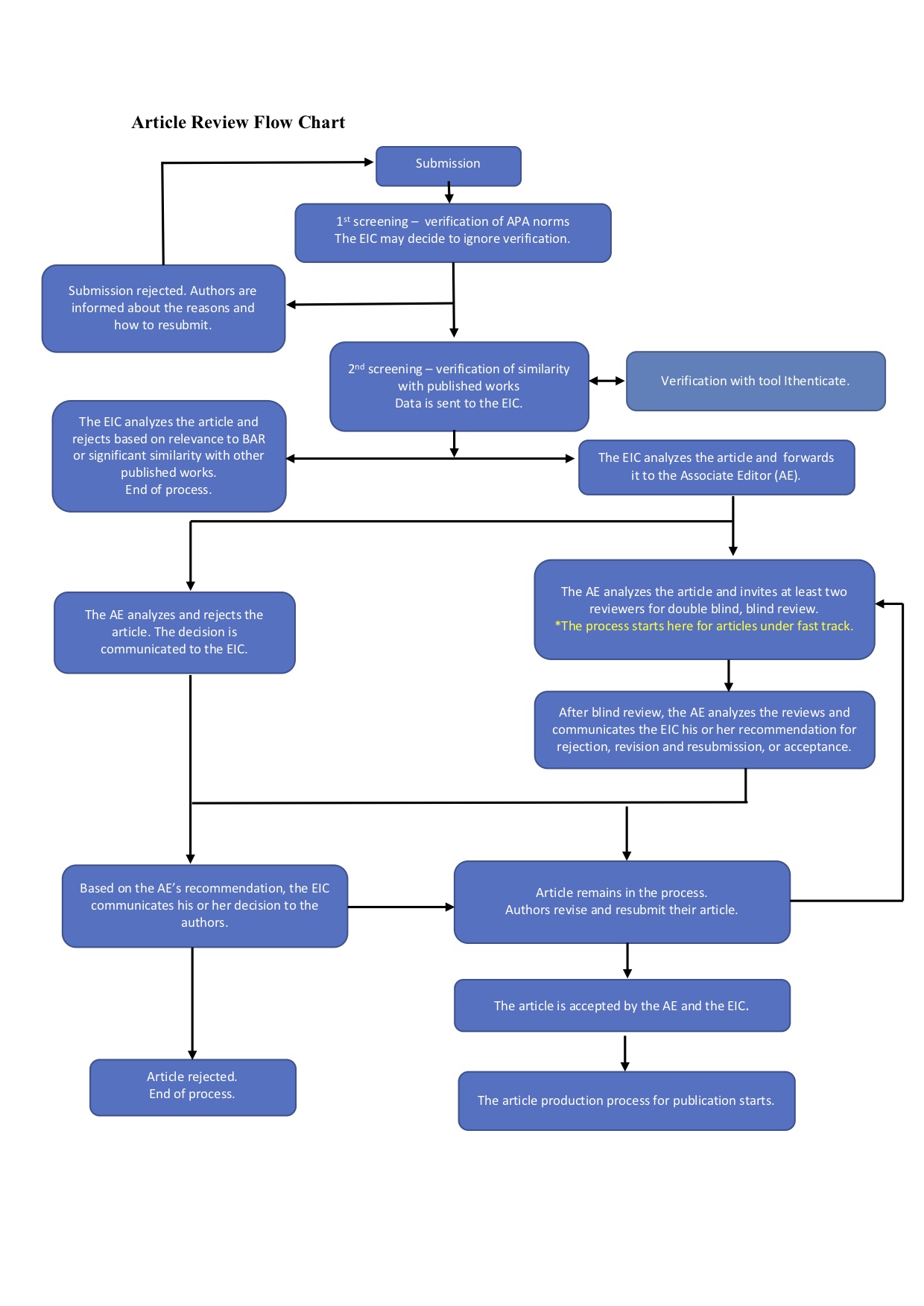About the Journal
Launched in 2004 by the Brazilian Academy of Management (ANPAD), BAR has an international scope in terms of topics of interest, target audience, and editorial boards. It is an A2 journal according to the Brazilian classification Qualis/Capes (second highest rank), which is evidence of the quality of published works and the transparency of the editorial process. BAR follows the editorial principles available in the document Best Practices in Scientific Publication, an initiative by the Brazilian Academy of Management (ANPAD) to assist journals in meeting high scholarly standards and enhancing their theoretical and applied impact. BAR is also a member of COPE (Committee on Publication Ethics) and a signatory of DORA (San Francisco Declaration on Research Assessment), which is additional evidence of BAR's commitment to the most rigorous ethical principles in scholarly publication.
According to the Brazilian indexing service SPELL (Scientific Periodicals Electronic Library), there are more than 100 Brazilian journals that publish original studies in the fields covered by BAR. BAR stands out in this scenario due to meeting world-class editorial standards, such as the commitment to editorial deadlines, the application of theoretical and methodological rigor in the review of manuscripts, and the scholarly reputation of the editorial boards. Actions like these have been contributing to the image of BAR as home to unique intellectual production.
BAR’s editorial process is highly structured, with systematic procedures intended to assist the editor-in-chief, senior editors, associate editors, and reviewers in the editorial process. Besides the editorial board, the journal also has an experienced office staff supporting all processes in order to assure publication quality, timeliness, and adherence to other requirements of indexing services such as Scopus, SciELO, and Spell. The office staff checks submissions for originality, formatting standards, APA Style, and English usage, communicates with authors, reviewers, and editors on ordinary routines, and builds statistics from the various indexing platforms where BAR is present - and the office also feeds those platforms with data from BAR.
As part of the constantly improving editorial process, in 2012, BAR adopted the practice of publishing articles ahead of print, i.e., online publishing of accepted articles before the complete full issue is published. Also, in 2014, BAR started to encode articles in XML, a due action for all journals indexed by SciELO. In 2015, BAR adopted a CC-BY Creative Commons license, also following SciELO standards. That license is used by different publishers and titles to make it easier to access information and disseminate knowledge. In 2016, the ahead-of-print practice evolved to a continuous publication model, a model that was championed by BAR in its field in Brazil. That is, BAR publishes articles in final form and sends them to the indexing services as soon as they complete the full editorial process and independently of the other documents to be published in the same issue. In an era of digital technologies, BAR thus quickly reaches the reader and disseminates knowledge from highly relevant scholarly studies to an audience keen on innovation and advancements in the frontiers of science and practice.
BAR is present in many of the most prestigious indexing platforms, such as Scopus, SciELO, Spell, Cabell’s, ProQuest, DOAJ, EBSCO, Gale/Cengage Learning, IBSS, Latindex, Ullrichs, and Redalyc. Please refer to the full list here.
Topic coverage for BAR is as follows:
- Accounting
- Education and Research in Management and Accounting
- Entrepreneurship
- Finance & Economics
- Human Resources & Labor Relations Management
- International Business
- Logistics, Operations & Supply Chain Management
- Management Information Systems & Decision Support
- Marketing
- Organization Studies
- Public Administration
- Science, Technology & Innovation Management
- Social & Environmental Management
- Strategy

